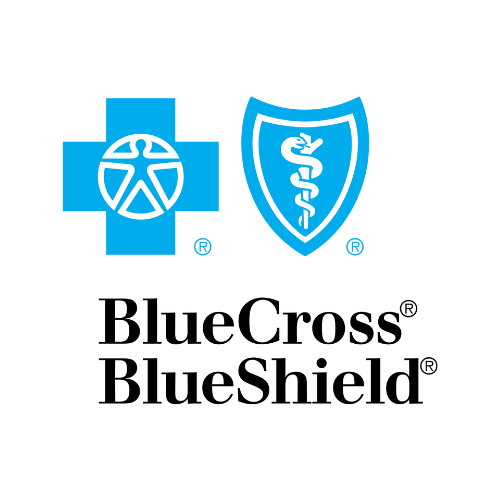General Questions
Looking for answers about dental health, procedures, or anything else related to dentistry? We've got you covered! Take a look at our frequently asked questions (FAQs) below. If you don't find the information you're seeking, please don't hesitate to reach out to us. We're here to help!
-
Why should I go to the dentist regularly?
Many people do not see a dentist on a regular basis. They only go when they have a problem. While these patients may feel they are saving money, it often ends up costing much more in dollars and time. This is because many dental problems do not have symptoms until they reach the advanced stages of the disease process. An example is tooth decay. Tooth decay often does not hurt until it gets close to the nerve of the tooth. It is not uncommon to see a patient with a huge cavity who has never felt a thing. The dentist can usually detect a cavity 3-4 years before it develops any symptoms. This early detection can help you prevent root canal treatment or possibly even having to extract a tooth.
-
Why should I floss, isn't brushing enough?
Flossing reduces the number of bacteria in your mouth. These bacteria live in plaque which can be removed by flossing. Brushing your teeth gets rid of some of the bacteria in your mouth. Flossing gets rid of the bacteria the toothbrush can’t get to. That’s the bacteria hiding in the tiny spaces between your teeth and below the gumline. If you do not floss, you allow plaque to remain between your teeth. Eventually it hardens into tartar. Plaque can be removed by brushing. Only the dentist can remove tartar.
-
How can I prevent cavities?
Always spend two to three minutes brushing your teeth. It takes that long to get rid of the bacteria that destroy tooth enamel. Do not brush too hard. It takes very little pressure to remove bacteria and plaque. Floss at least once a day. Flossing is the only way to get bacteria from between your teeth.
Watch the sugar you eat. There is sugar in candy, fruits, crackers and chips. These are the foods that the bacteria in your mouth like best. Be mindful of foods like raisins and peanut butter that stick to your teeth. They can provide a constant supply for the bacteria eating into your teeth. Try to minimize the times during the day when sweet items are eaten and brush your teeth afterwards.
If you cannot brush after a meal, rinse your mouth with water – which can help to remove food from your teeth. Chewing sugarless gum after a meal can also help. And do not forget your regular dental visits. Good dental habits will go a long way toward a no-cavity visit.
-
Why does the dentist take X-rays?
Many diseases of the teeth and surrounding tissues cannot be seen when the dentist examines the mouth. An X-ray examination may reveal:
small areas of decay between the teeth or below existing restorations (fillings)
infections in the bon
periodontal (gum) disease
abscesses or cysts
developmental abnormalities
some types of tumors
Finding and treating dental problems at an early stage can save time, money and often unnecessary discomfort. X-rays can detect damage to oral structures not visible during a regular exam. If you have a hidden tumor, X-rays may even help save your life. Dentist will evaluate your need for X-rays based on the conditions present in development. There are many benefits to having X-rays taken. Any additional questions or concerns should be discussed with your dentist.
-
What is fluoride and why is it important to dental health?
Fluoride is a mineral that occurs naturally in many foods and in water. Some natural sources of fluoride are brewed tea, canned fish, cooked kale and spinach, apples, and skim milk. Some city water contains fluoride, so by drinking tap water you will acquire fluoride. If drinking water does not have fluoride, supplements are available.
The lack of exposure to fluoride places individuals of any age at risk for dental decay. Fluoride is important to dental health because it helps prevent tooth decay by making your tooth enamel more resistant to acid attacks from plaque bacteria in your mouth and early decay which may help prevent osteoporosis, a disease that causes degenerative bone loss.
-
What are cavity-fighting sealants?
The American Dental Association says sealants are an effective weapon in the arsenal against tooth decay. Sealants are a thin coating painted on chewing surfaces of molars and premolars. Dental sealants act as a barrier, protecting your teeth against decay-causing bacteria.
Sealants have proven effective with both adults and children, but are most commonly used with children. Despite the fact that sealants are about half the cost of fillings, only a small percentage of school-aged children have sealants on their permanent teeth. Ask your dentist whether sealants are a good choice for you or your children.
-
What can I do about sensitive teeth?
Sensitivity toothpastes, which contains strontium chloride or potassium nitrate, are very effective in treating sensitive teeth. After a few weeks of use, you may notice a decrease in sensitivity. Highly acidic foods such as oranges, grapefruits and lemons, as well as tea and soda can increase tooth sensitivity, and work against sensitivity toothpaste. If you do not get relief by brushing gently and using desensitizing toothpaste, see your dentist. There are special compounds that can be applied in-office to the roots of your tooth to reduce – if not eliminate – the sensitivity. High-fluoride containing home care products can also be recommended to help reduce tooth sensitivity.
-
What is periodontal disease?
Periodontal disease is inflammation and infection of the gums and supporting bone structure, which if left untreated, can cause permanent jaw bone destruction and possible tooth loss. Untreated periodontal disease has been linked to increased risk for conditions such as heart disease, stroke, low birth weight babies, pre-term delivery, respiratory disease, and prostate cancer. An advanced stage of periodontal disease exhibits inflamed gums pulling away from your bone and teeth. Other signs of periodontal disease include:
Bad breath
Red or swollen gums
Loose teeth or teeth that have moved
Sensitive teeth
Pus coming from around the teeth
Pain when chewing
Tender gums
Bleeding gums
Treatment of early periodontal disease can be performed in-office. However, advanced stages may require surgery. Periodontal disease can be prevented and treated successfully by seeing your dentist and dental hygienist regularly and following recommended care plans.
-
What should I do about bleeding gums?
People often respond to bleeding gums with the wrong method of treatment. Usually, gums that bleed are a symptom of the onset of periodontal disease or gingivitis. But often, people stop brushing as frequently and effectively because it may be painful or it may cause the gums to bleed again. However, when gums are inflamed, brushing could help reduce the inflammation. More importantly, you should see your dentist to have a periodontal screening performed in order to determine the level of disease present and the best treatment course to pursue.
It is also worth noting that chronic dental pain and discomfort are obvious signs of a problem. Over-the-counter drugs may provide some temporary relief. These medications usually only mask the existence of a problem and should be taken on a temporary basis.
It is important to see your dentist as soon as possible if your gums begin to bleed.
-
Why do my teeth darken?
Many factors work to destroy the naturally white smile you were born with. Tobacco, certain foods, and certain drinks actually stain teeth. These substances continually work on our teeth causing our white smile to gradually fade. Hot coffee and tea are especially hazardous to your smile because they change the temperature of teeth. This temperature change – hot and cold cycling – causes the teeth to expand and contract allowing stains to penetrate the teeth. Cutting down on coffee and tea can go a long way to creating a great smile. Foods that are slightly acidic are also dangerous to your white smile. These foods open up the pores of the tooth enamel allowing stains to move more easily into the tooth.
-
How long will the results of teeth whitening last?
Like other investments, if you whiten your teeth, the length of time you can expect it to last will vary. If you smoke, drink red wine or coffee, or consume other acid-containing foods, your bright smile may begin to yellow more quickly than you expect. And even though the results can fade, occasional touch-ups can be done to regain luster.
-
What causes canker sores?
The exact cause of canker sores is unknown. Some factors may include genetics, allergies, stress, and vitamin and mineral deficiencies. Trauma to the inside of the mouth can result in the development of canker sores. Ill-fitting dentures or braces, toothbrush trauma from brushing too hard, or biting your cheek, may produce canker sores. Certain foods may also be a factor. Citrus or acidic fruits and vegetables can trigger a canker sore or make the problem worse. Foods like chips, pretzels and hard candies have sharp edges that can nick and injure the soft tissue of the mouth.
To treat a canker sore, rinse your mouth with antimicrobial mouthwash or warm water and salt. Over the counter treatments are also available. If the canker sore is present longer than two weeks, see your dentist.
-
Why should I use a mouthguard?
A mouthguard can prevent injuries to your face and teeth. Most people benefit from wearing a mouthguard when playing any sport. You should wear one whether you are playing professionally or just on weekends. Do what you can to preserve your smile and your health. The best mouthguards are custom-fitted by your dentist. This is especially important if you wear braces or fixed bridgework.
Commercial, ready-made mouthguards can be purchased at most sporting goods stores. They are relatively inexpensive but they are also less effective. In either case, rinse your mouthguard with water or mouthwash after each use. With proper care, it should last for several months.
Ask your dentist which kind of mouthguard you should use.
-
I have dentures. Is it necessary for me to still see my dentist?
Visits to the dentist include more than just “checking teeth.” While patients who wear dentures no longer have to worry about dental decay, they may have concerns with ill fitting appliances or mouth sores to name a few. Annual visits to the dentist (or sooner if soreness is present) is recommended. During these visits, an oral cancer screening and head and neck exam will be performed as well as an evaluation of the fit or need for replacement of the existing appliances. Regular visits can help you to avoid more complicated problems down the road.
General Questions
Looking for answers about dental health, procedures, or anything else related to dentistry? We've got you covered! Take a look at our frequently asked questions (FAQs) below. If you don't find the information you're seeking, please don't hesitate to reach out to us. We're here to help!
-
Why should I go to the dentist regularly?
Many people do not see a dentist on a regular basis. They only go when they have a problem. While these patients may feel they are saving money, it often ends up costing much more in dollars and time. This is because many dental problems do not have symptoms until they reach the advanced stages of the disease process. An example is tooth decay. Tooth decay often does not hurt until it gets close to the nerve of the tooth. It is not uncommon to see a patient with a huge cavity who has never felt a thing. The dentist can usually detect a cavity 3-4 years before it develops any symptoms. This early detection can help you prevent root canal treatment or possibly even having to extract a tooth.
-
Why should I floss, isn't brushing enough?
Flossing reduces the number of bacteria in your mouth. These bacteria live in plaque which can be removed by flossing. Brushing your teeth gets rid of some of the bacteria in your mouth. Flossing gets rid of the bacteria the toothbrush can’t get to. That’s the bacteria hiding in the tiny spaces between your teeth and below the gumline. If you do not floss, you allow plaque to remain between your teeth. Eventually it hardens into tartar. Plaque can be removed by brushing. Only the dentist can remove tartar.
-
How can I prevent cavities?
Always spend two to three minutes brushing your teeth. It takes that long to get rid of the bacteria that destroy tooth enamel. Do not brush too hard. It takes very little pressure to remove bacteria and plaque. Floss at least once a day. Flossing is the only way to get bacteria from between your teeth.
Watch the sugar you eat. There is sugar in candy, fruits, crackers and chips. These are the foods that the bacteria in your mouth like best. Be mindful of foods like raisins and peanut butter that stick to your teeth. They can provide a constant supply for the bacteria eating into your teeth. Try to minimize the times during the day when sweet items are eaten and brush your teeth afterwards.
If you cannot brush after a meal, rinse your mouth with water – which can help to remove food from your teeth. Chewing sugarless gum after a meal can also help. And do not forget your regular dental visits. Good dental habits will go a long way toward a no-cavity visit.
-
Why does the dentist take X-rays?
Many diseases of the teeth and surrounding tissues cannot be seen when the dentist examines the mouth. An X-ray examination may reveal:
small areas of decay between the teeth or below existing restorations (fillings)
infections in the bon
periodontal (gum) disease
abscesses or cysts
developmental abnormalities
some types of tumors
Finding and treating dental problems at an early stage can save time, money and often unnecessary discomfort. X-rays can detect damage to oral structures not visible during a regular exam. If you have a hidden tumor, X-rays may even help save your life. Dentist will evaluate your need for X-rays based on the conditions present in development. There are many benefits to having X-rays taken. Any additional questions or concerns should be discussed with your dentist.
-
What is fluoride and why is it important to dental health?
Fluoride is a mineral that occurs naturally in many foods and in water. Some natural sources of fluoride are brewed tea, canned fish, cooked kale and spinach, apples, and skim milk. Some city water contains fluoride, so by drinking tap water you will acquire fluoride. If drinking water does not have fluoride, supplements are available.
The lack of exposure to fluoride places individuals of any age at risk for dental decay. Fluoride is important to dental health because it helps prevent tooth decay by making your tooth enamel more resistant to acid attacks from plaque bacteria in your mouth.
early decay and help prevent osteoporosis, a disease that causes degenerative bone loss.
-
What are cavity-fighting sealants?
The American Dental Association says sealants are an effective weapon in the arsenal against tooth decay. Sealants are a thin coating painted on chewing surfaces of molars and premolars. Dental sealants act as a barrier, protecting your teeth against decay-causing bacteria.
Sealants have proven effective with both adults and children, but are most commonly used with children. Despite the fact that sealants are about half the cost of fillings, only a small percentage of school-aged children have sealants on their permanent teeth. Ask your dentist whether sealants are a good choice for you or your children.
-
What can I do about sensitive teeth?
Sensitivity toothpastes, which contains strontium chloride or potassium nitrate, are very effective in treating sensitive teeth. After a few weeks of use, you may notice a decrease in sensitivity. Highly acidic foods such as oranges, grapefruits and lemons, as well as tea and soda can increase tooth sensitivity, and work against sensitivity toothpaste. If you do not get relief by brushing gently and using desensitizing toothpaste, see your dentist. There are special compounds that can be applied in-office to the roots of your tooth to reduce – if not eliminate – the sensitivity. High-fluoride containing home care products can also be recommended to help reduce tooth sensitivity.
-
What is periodontal disease?
Periodontal disease is inflammation and infection of the gums and supporting bone structure, which if left untreated, can cause permanent jaw bone destruction and possible tooth loss. Untreated periodontal disease has been linked to increased risk for conditions such as heart disease, stroke, low birth weight babies, pre-term delivery, respiratory disease, and prostate cancer. An advanced stage of periodontal disease exhibits inflamed gums pulling away from your bone and teeth. Other signs of periodontal disease include:
Bad breath
Red or swollen gums
Loose teeth or teeth that have moved
Sensitive teeth
Pus coming from around the teeth
Pain when chewing
Tender gums
Bleeding gums
Treatment of early periodontal disease can be performed in-office. However, advanced stages may require surgery. Periodontal disease can be prevented and treated successfully by seeing your dentist and dental hygienist regularly and following recommended care plans.
-
What should I do about bleeding gums?
People often respond to bleeding gums with the wrong method of treatment. Usually, gums that bleed are a symptom of the onset of periodontal disease or gingivitis. But often, people stop brushing as frequently and effectively because it may be painful or it may cause the gums to bleed again. However, when gums are inflamed, brushing could help reduce the inflammation. More importantly, you should see your dentist to have a periodontal screening performed in order to determine the level of disease present and the best treatment course to pursue.
It is also worth noting that chronic dental pain and discomfort are obvious signs of a problem. Over-the-counter drugs may provide some temporary relief. These medications usually only mask the existence of a problem and should be taken on a temporary basis.
It is important to see your dentist as soon as possible if your gums begin to bleed.
-
Why do my teeth darken?
Many factors work to destroy the naturally white smile you were born with. Tobacco, certain foods, and certain drinks actually stain teeth. These substances continually work on our teeth causing our white smile to gradually fade. Hot coffee and tea are especially hazardous to your smile because they change the temperature of teeth. This temperature change – hot and cold cycling – causes the teeth to expand and contract allowing stains to penetrate the teeth. Cutting down on coffee and tea can go a long way to creating a great smile. Foods that are slightly acidic are also dangerous to your white smile. These foods open up the pores of the tooth enamel allowing stains to move more easily into the tooth.
-
How long will the results of teeth whitening last?
Like other investments, if you whiten your teeth, the length of time you can expect it to last will vary. If you smoke, drink red wine or coffee, or consume other acid-containing foods, your bright smile may begin to yellow more quickly than you expect. And even though the results can fade, occasional touch-ups can be done to regain luster.
-
What causes canker sores?
The exact cause of canker sores is unknown. Some factors may include genetics, allergies, stress, and vitamin and mineral deficiencies. Trauma to the inside of the mouth can result in the development of canker sores. Ill-fitting dentures or braces, toothbrush trauma from brushing too hard, or biting your cheek, may produce canker sores. Certain foods may also be a factor. Citrus or acidic fruits and vegetables can trigger a canker sore or make the problem worse. Foods like chips, pretzels and hard candies have sharp edges that can nick and injure the soft tissue of the mouth.
To treat a canker sore, rinse your mouth with antimicrobial mouthwash or warm water and salt. Over the counter treatments are also available. If the canker sore is present longer than two weeks, see your dentist.
-
Why should I use a mouthguard?
A mouthguard can prevent injuries to your face and teeth. Most people benefit from wearing a mouthguard when playing any sport. You should wear one whether you are playing professionally or just on weekends. Do what you can to preserve your smile and your health. The best mouthguards are custom-fitted by your dentist. This is especially important if you wear braces or fixed bridgework.
Commercial, ready-made mouthguards can be purchased at most sporting goods stores. They are relatively inexpensive but they are also less effective. In either case, rinse your mouthguard with water or mouthwash after each use. With proper care, it should last for several months.
Ask your dentist which kind of mouthguard you should use.
-
I have dentures. Is it necessary for me to still see my dentist?
Visits to the dentist include more than just “checking teeth.” While patients who wear dentures no longer have to worry about dental decay, they may have concerns with ill fitting appliances or mouth sores to name a few. Annual visits to the dentist (or sooner if soreness is present) is recommended. During these visits, an oral cancer screening and head and neck exam will be performed as well as an evaluation of the fit or need for replacement of the existing appliances. Regular visits can help you to avoid more complicated problems down the road.










